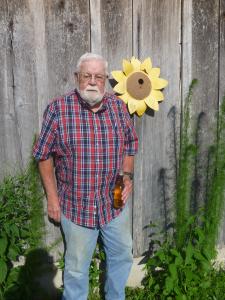B.J. Copeland

1997 North Carolina Fisheries Reform Act
The Fisheries Reform Act is the most significant fisheries legislation in NC history.
In 1994, the North Carolina General Assembly approved a moratorium on the sale of new commercial fishing licenses and established the 19-member Fisheries Moratorium Steering Committee to oversee a study of the state's entire coastal fisheries management process and to recommend changes to improve that process. The Moratorium Steering Committee included legislators, fisheries managers, scientists, commercial fishermen, and recreational fishermen. The committee commissioned six research studies and reviewed a broad range of issues, including fishing licenses, fishing gear, habitat protection, agency organization, and law enforcement. The committee issued a draft report in the late summer of 1996, held 19 public meetings across the state, and adopted a final report in October 1996 that formed the basis for the Fisheries Reform Act. Governor James B. Hunt signed the Act into law on August 14, 1997.
The 1997 North Carolina Fisheries Reform Act: An Oral History Perspective was made possible by the North Carolina Sea Grant Community Collaborative Research Grant Program.
Mary Williford
B.J. Copeland, born on November 20th, 1936, in a country home near Mannsville, has had a significant impact on the fisheries of North Carolina. He has an extensive educational background and has served in the Zoology Department at North Carolina State University. Copeland was initially appointed to the Marine Fisheries Commission in the 1980s under Governor James G. "Jim" Martin's "Egghead Commissions." Throughout his career, he has been involved in numerous public hearings and has worked to foster communication and interaction between different stakeholders in the fisheries sector.
Scope and Content Note
This interview with B.J. Copeland, conducted by Mary Williford for the CSWMHC Coastal Voices Project on June 26, 2016, provides an in-depth look at Copeland's experiences and perspectives on the fisheries of North Carolina. The interview covers a range of topics, including Copeland's educational background, his tenure at North Carolina State University's Zoology Department, and his initial appointment to the Marine Fisheries Commission in the 1980s. Copeland shares anecdotes from his career, such as his interactions with blackland farmers and their impact on habitat, and his experiences with public hearings. He also discusses the changing political landscape, noting the decline in communication and the increasing suspicion among different parties. The interview concludes with Copeland's reflections on the Fisheries Reform Act project, the changing dynamics of the fisheries sector, and his hopes for the future. Throughout the interview, Copeland's insights provide a valuable perspective on the complexities and challenges of managing North Carolina's fisheries.
Please Note: The oral histories in this collection are protected by copyright and have been created for educational, research and personal use as described by the Fair Use Doctrine in the U.S. Copyright law. Please reach out Voices@noaa.gov to let us know how these interviews are being used in your research, project, exhibit, etc. The Voices staff can help provide other useful resources related to your inquiry.
The NOAA mission is to understand and predict changes in climate, weather, oceans, and coasts, to share that knowledge and information with others, and to conserve and manage coastal and marine ecosystems and resources. The Voices Oral History Archives offers public access to a wide range of accounts, including historical materials that are products of their particular times, and may contain offensive language or negative stereotypes.
Voices Oral History Archives does not verify the accuracy of materials submitted to us. The opinions expressed in the interviews are those of the interviewee only. The interviews here have been made available to the public only after the interviewer has confirmed that they have obtained consent.
